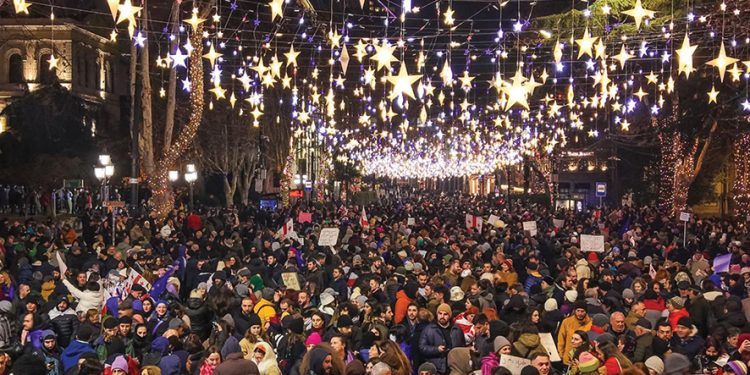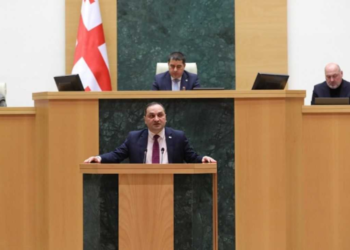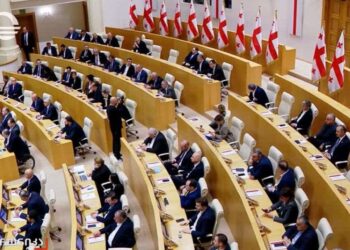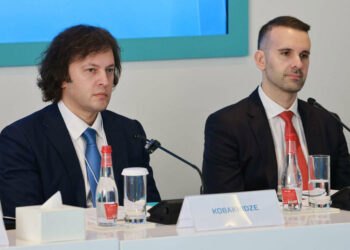In a juxtaposition to the ongoing mass protests against the Georgian government’s refusal to re-run the elections or to pursue European Union accession talks until 2028, Tbilisi has been lit up with the glow of festive New Year illuminations and “Christmas villages.” Despite the political unrest and nightly street rallies, Tbilisi Mayor Kakha Kaladze emphasized the city’s commitment to preserving the “joy of the season:” “New Year is everyone’s favorite public holiday, and we will not allow anyone to take away the feeling of joy and happiness from our children and fellow citizens. Tbilisi will be the most beautiful New Year city, we will have many festive events during these days, and we will meet the new 2025 year as we deserve—with new victories, hope for peace, and development,” Kaladze said.
As the city shines with festive lights, protests on Rustaveli Avenue continue unabated. The rally, which has now lasted nearly 30 consecutive days, remains a symbol of defiance against the government’s decision. Protesters from every field and of every age have gathered with the same demands: new elections and the release of those detained during the protests. The citizens are also united in opposition to the Georgian Dream party’s decision to delay EU negotiations until at least 2028.
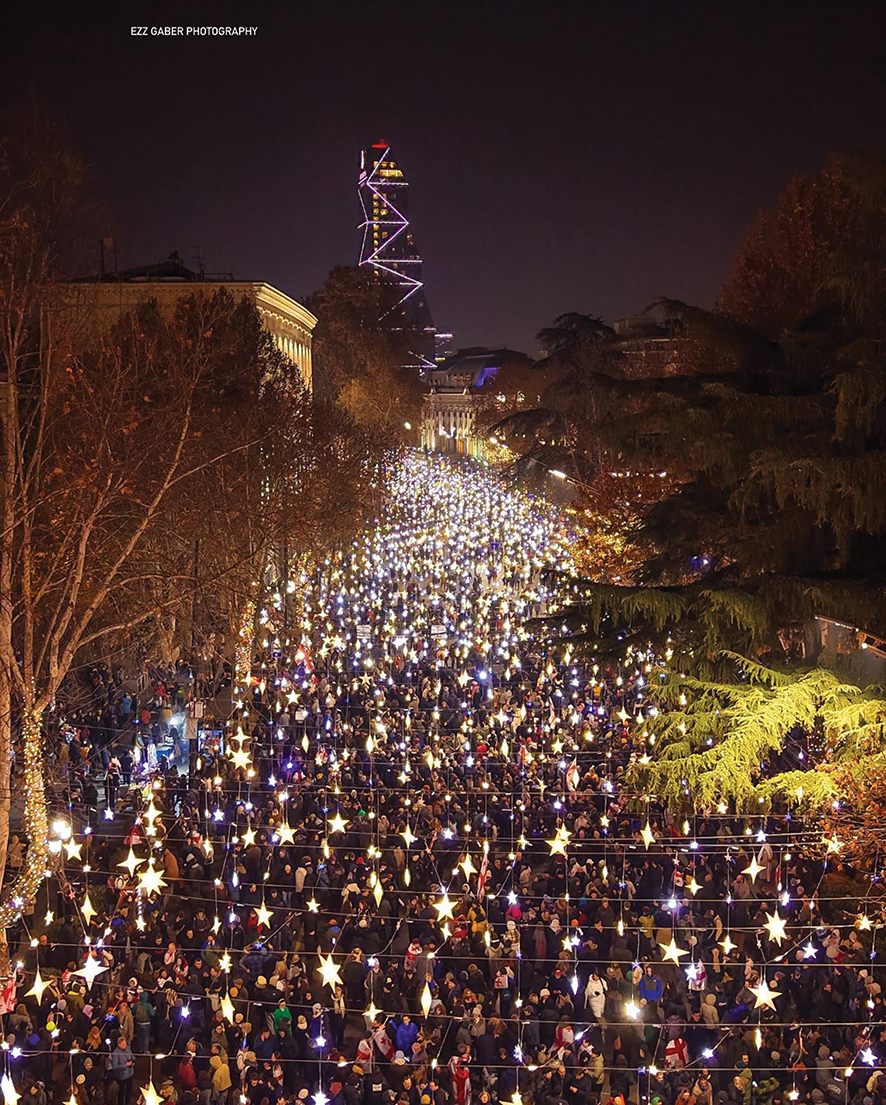
The protest has gained international attention, with several Members of the European Parliament (MEPs) joining the rally on December 12. MEPs Reinier van Lanschot from the Netherlands, Michał Szczerba from Poland, Tobias Cremer from Germany, Rasa Jukneviciene from Lithuania, and Sergey Lagodinsky from Germany stood with the demonstrators, receiving warm applause from the crowd. Since then, a plethora of condemnation has been heard from abroad about the riot police crackdowns on demonstrators seen earlier in the month.
In line with the mounting protests, the Georgian government has been tightening the Code of Administrative Offenses. New proposed amendments are set to increase fines and penalties for actions typically associated with protest participation, such as obstructing traffic or violating norms for assemblies. For instance, fines for obstructing traffic could rise from 1,000 to 2,000 GEL, and organizers of protests could face fines of up to 15,000 GEL or even administrative imprisonment. The amendments also introduce harsher penalties for actions such as illegal uniform use by protestors and non-compliance with law enforcement requests. Mask-wearing and use of fireworks are also set to be deemed illegal.

Rights groups, including the Georgian Young Lawyers’ Association (GYLA), have criticized these proposed changes, arguing that they are a means of intimidating the public. GYLA highlighted concerns that the new regulations would be disproportionately used against protesters, undermining their right to freedom of expression and assembly. “It is obvious that the government is trying to intimidate the population by increasing sanctions for actions related to gatherings, demonstrations, and protests,” the group stated, pointing out the likelihood that the judicial system would favor police testimony without proper appeal.
As these new laws are considered, the protests in Georgia show no sign of abating.
On Saturday alone, there were 20 declared marches in Tbilisi and the regions. A vehicle column departed from Kutaisi Central Square toward Tbilisi at 10am, while in Tbilisi, at 2pm, a march began from Kaha Bendukidze Campus to Tbilisi City Court and social workers gathered near Tbilisi State University. At 3pm, a teachers’ march kicked off from Vaso Abashidze Theater in parallel with a “Kutaisians’ March” from Gabriadze Theater and a “Potterheads’ March” from D. Agmashenebeli Avenue. At 4pm, a “Svans’ March” “Yoga march,” and “Acharians’ March” began, followed at 5pm by “Fashion Industry Representatives” and striking students and lecturers. Their destination: the parliament building on Rustaveli Avenue. At 6pm they were joined by a “Rachvelians’ March”, a march of tattoo artists and tattoo enthusiasts, an “Aragvelians’ March,” a “Kartlians’ March” and an “Imeretians’ March.” The “Megrelians” joined them at 7pm, as did ISET students and alumni, “Gamers,” and “Meskhetians.” The day was nicely crowned by a mass “Khorumi” (Georgian national dance) march, uniting hundreds of youth, amateur and professional dancers dancing along Rustaveli wielding Georgian and EU flags.
The demand for new elections and the release of detained protesters continues to resonate through the streets of Tbilisi and other cities across the country. The marches have seen participation from a diverse array of groups, demonstrating the widespread discontent. These groups, counting civil servants, students, and members of various areas of business, entertainment and education, are showing their collective resistance to a government they feel is betraying the country’s European aspirations. In parallel, the government claims “there is no crisis.”
With marches planned throughout the upcoming days and evenings ahead of the planned “presidential inauguration” on December 29, the Georgian people are making their voices heard in a powerful display of unity and resistance. The protests are not only a call for political change but also a demonstration of the deep desire among Georgians for a European future—a future they are determined to fight for, even as the festive lights of the season twinkle brightly against a backdrop of political tension.
By Team GT

